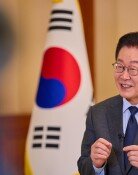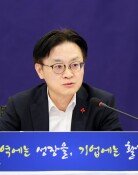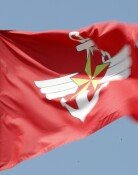Survey: Roh to Blame for Uri Party Woes
Survey: Roh to Blame for Uri Party Woes
Posted November. 19, 2005 08:21,
The Uri Party Foundation, a think tank of the Koreas ruling Uri Party, conducted a survey on the reasons behind the falling popularity of the party and the overriding cause was found out to be the disappointment at President Roh Moo-hyuns national administration.
A researcher at the foundation yesterday released the results of the in-depth survey conducted on six men and seven women aged between 25 and 45 who withdrew their support for the party even though they backed the Uri Party at the time of the presidential and general elections.
The respondents surveyed gave a negative evaluation of the president, saying he is too emotional and does not behave prudently as a president; he makes an excuse for failure in running national administration; he focuses more on politics than on the economy, and he is not a suitable man for a president.
The respondents described the presidential advisers at Cheong Wa Dae as immature rather than young, and suggested the presidents approval rating is falling further because of his hasty advisers who rush to implement policies.
As to the Uri Party, the respondents commented, The party lacks experience and a driving force, and has made improvised and unpractical responses preoccupied with idealism, and also pointed out the lack of figures that can represent the party. The key figures of the party the respondents mentioned were President Roh Moo-hyun, the Minister of Unification Chung Dong-young, Minister of Health and Welfare Kim Geun-tae, and former Party chairman Moon Hee-sang, but the survey showed that all of them were insufficient in showing concrete leadership.
According to the survey, the respondents suggested the preconditions for a recovery of the partys popularity as generating new leadership led by a proven figure, shedding its image of being President Rohs party, and the need to check Cheong Wa Dae to ensure the government is moving in a right direction.
Among the 13 respondents surveyed, six people are now said to support the Grand National Party, two support the Democratic Labor party, and one supports the Millennium Democratic Party, while four respondents did not side with any of the political parties.
Jung-Hun Kim jnghn@donga.com







